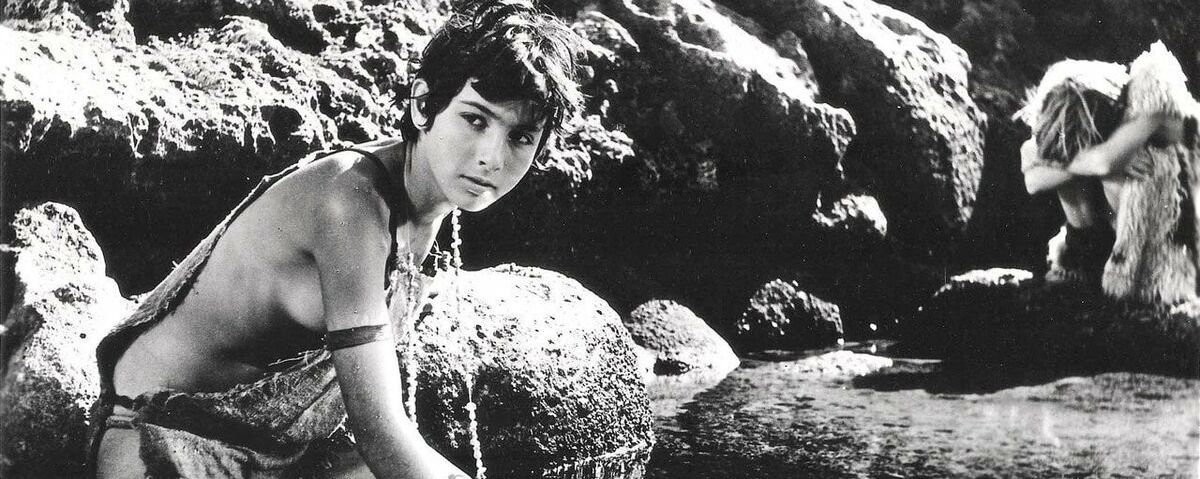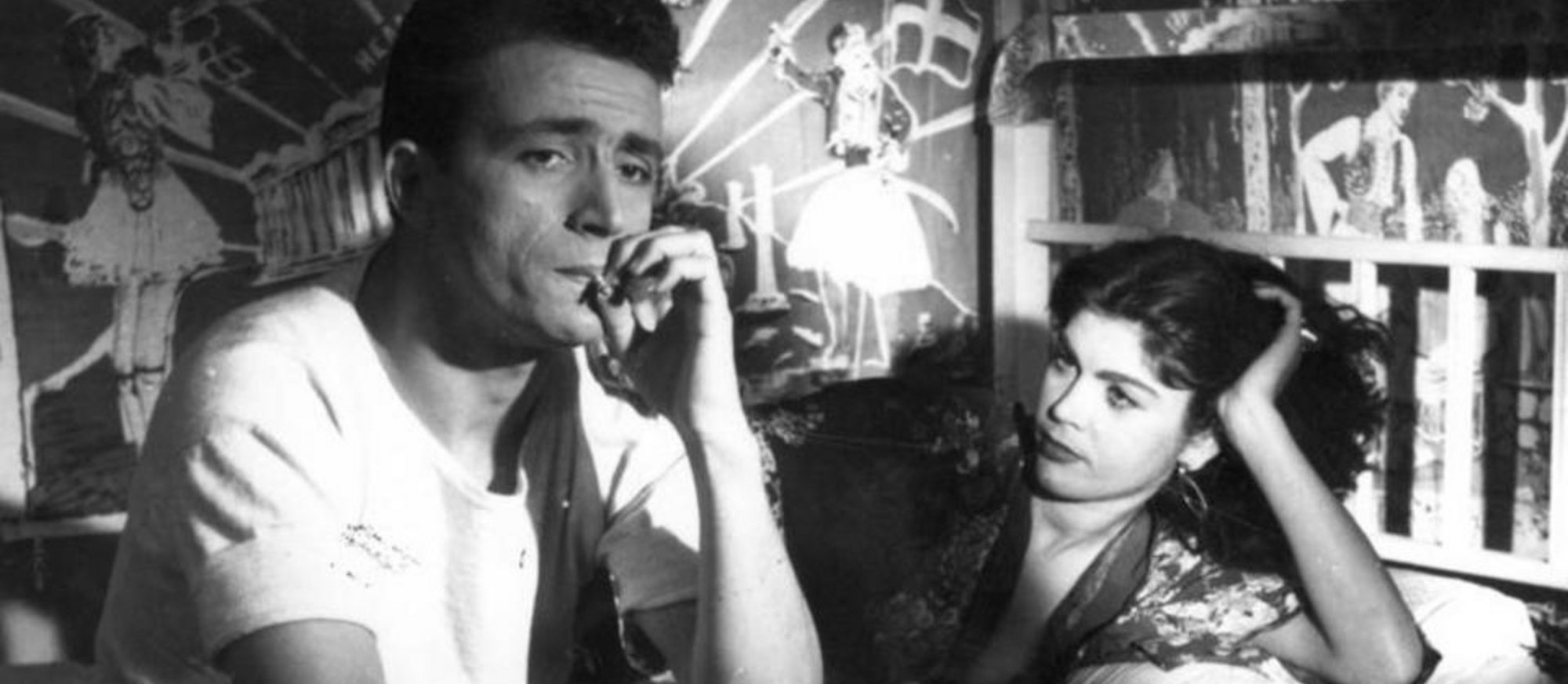
16–23 October
As a versatile filmmaker whose work existed in the intersections of neorealism, film noir, experimental cinema and mythology, it’s no surprise that Greek writer and director Nikos Koundouros (1926–2017) lived a similarly multifaceted life. Born in Athens to an upper-class Cretan family, Koundouros first studied painting and sculpture during World War II, also joining the Greek Resistance against Axis occupation as a soldier of the Communist-dominated National Liberation Front’s army. During the ensuing Civil War, Koundouros’ membership of the Front resulted in his exile to the notorious Makronisos island concentration camp, where he says he “discovered the power of the human voice” and decided to pursue filmmaking. Returning from exile, Koundouros established himself in opposition to mainstream Greek aesthetics and narratives with his Rossellini-influenced The Magic City (1954) and expressionistic The Ogre of Athens (1956). Despite overseas acclaim, including his Young Aphrodites (1963) winning the Silver Bear at the Berlin International Film Festival, widespread recognition mostly alluded Koundouros during his career, partly due to his controversial reputation at home, along with his constant battles against censorship; the most notable involving his depiction of atrocities committed during the Greco-Turkish War in 1922 (1978). This season allows Melbourne audiences to experience several of the key works of a singular and revolutionary artist, without whom “nothing can be understood in the subsequent history of Greek cinema” (Vrasidas Karalis).
Presented in partnership with the Greek-Australian Film Society.

7:00pm THE OGRE OF ATHENS
Nikos Koundouros (1956) 105 mins – Unclassified 15+
Once voted the greatest Greek film of all time by the Greek Film Critics Association, Koundouros’ most famous work uses a familiar Hitchcockian story of mistaken identity to criticise post-World War II Greece’s culture of relentless political persecution. Scripted by the prominent playwright Iakovos Kambanellis, himself a survivor of the Mauthausen concentration camp, the film’s noirish atmosphere of fluid forms and illusionary spaces is enhanced by the lens of cinematographer Costas Theodorides (Stella) and the music of Koundouros’ close friend Manos Hatzidakis (Never on Sunday).
9:05pm YOUNG APHRODITES
Nikos Koundouros (1963) 90 mins – Unclassified 15+
In 200BCE, nomadic sheepherders venture down from the mountains to a fishing village, where all the men are out to sea. Although almost all of the remaining women hide, a young girl and an older woman engage in different kinds of erotic and romantic interaction. A reworking of the classical tale of Daphnis and Chloe, Koundouros won the Silver Bear for Best Director at the Berlin International Film Festival for this controversially graphic and erotic observation of young lust and inevitable sexual violence, which Stanley Eichelbaum called “a ritualistic dance of love, hate, fear, lust and death”.

7:00pm THE MAGIC CITY
Nikos Koundouros (1954) 80 mins – Unclassified 15+
Koundouros’ first feature is a powerful, neorealism-influenced study of poverty in the slums of post-war Athens. In 1953, after being released from the prison island of Makronisos, where he was held for being a member of the National Liberation Front, Koundouros visited the Drogouti refugee camp and was inspired to make this film, drawing on many of his fellow inmates, including Thanasis Vengos (in his first screen appearance) and Manos Katrakis, to furnish the film’s cast and crew. Written by avant-garde playwright Margarita Lymberaki.
8:35pm 1922
Nikos Koundouros (1978) 135 mins – Unclassified 15+
Ostensibly banned by successive Greek governments because its release would ruin diplomatic relations with Turkey, Koundouros’ adaptation of Ilias Venezis’ autobiographical novel Number 31328 is a passionate plea against the political and military establishment that was complacent during the ethnic cleansing of Greeks in Anatolia. Told through the imaginative eyes of a boy who escapes Turkish imprisonment, the film is arguably the first time the true magnitude of the genocide was depicted onscreen “without evasions, phobias, or pretexts” (Vrasidas Karalis).